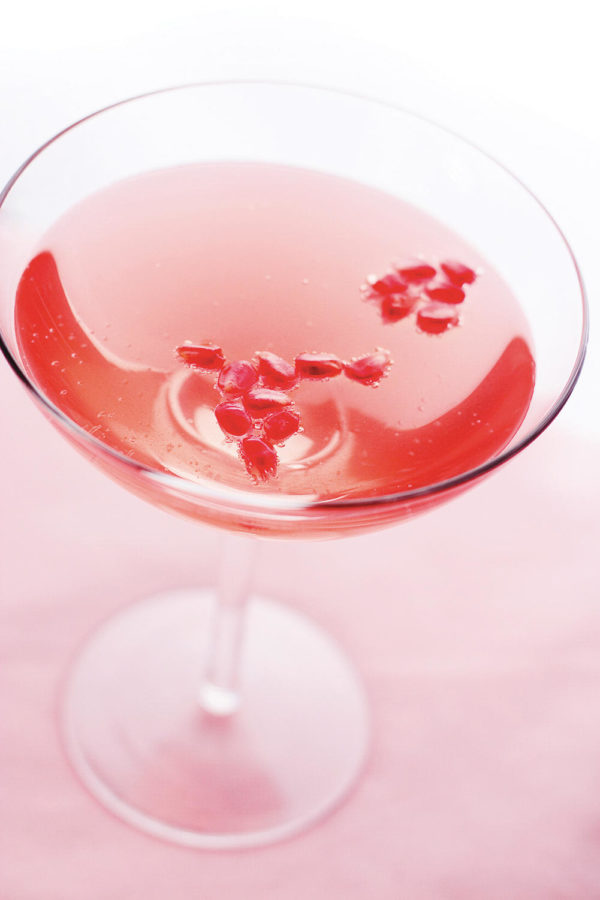New liquor law faces scrutiny from both opponents and advocates
Pomegranate Champagne Cocktail
July 6, 2012
A pre-Prohibition law preventing bar and restaurant owners to infuse their own spirits was overturned, but owners are still not completely satisfied.
Infused liquors are spirits flavored with other ingredients such as fruits, vegetables, herbs, spices or even candy. Raspberry vodka is an example of an infused liquor. Infusion is a process that can take days or weeks to do properly. The recent bill that was passed, however, permits only a 72-hour time span for drinks to be infused and served.
Chef Kurt Friese, owner of Devotay Restaurant and Bar in Iowa City, Iowa, is the man responsible for causing state legislators to examine the law.
Wanting to offer his customers more cocktail options, Friese began updating his restaurant to make it more conducive to infusing spirits, until his wholesaler informed him that infusion was illegal. Given that infusion is legal in other states, Friese was shocked, especially since he knew people in Iowa who had already been infusing drinks.
“I didn’t really feel like being one of those people who was breaking the law,” Friese said. “I wanted to be one of the people who was changing the law.”
Friese set out to change the law in October with the “Raise the Bar” campaign by creating an online petition and speaking to Sen. Joe Bolkcom, D-Iowa City. With additional support from Sens. Jeff Danielson, D-Waterloo and Rick Bertrand, R-Sioux City, the Iowa Restaurant Association, and fellow bar and restaurant owners, the bill eventually passed in the Senate by a 48-2 vote.
But the proposed bill wasn’t without its challenges.
The bill was initially shelved in the House after being passed in the Senate. The biggest opposition came from the beer distributors’ lobby, which saw the bill as a “crack” in Iowa’s three-tier system.
The three-tier system allows the state to regulate the manufacture, distribution and retail of alcohol, with no person or business operating in more than one tier of the system. Iowa beer wholesalers, for example, are concerned that by allowing bartenders and restaurateurs to infuse spirits, they will be operating as both retailers and producers.
Friese argues the law does not allow retailers to become producers because production processes such as fermenting, distilling and packaging are not involved in the infusion process.
R.J. Tursi, owner of Exile Brewing Co., which is scheduled to open next month in Des Moines, agrees that retailers would not necessarily also become producers under this law since bar and restaurant owners still purchase their spirits under the three-tier system.
Tursi compares infusing liquors to serving food. He said rather than serve a plain chicken breast, restaurant owners would bread the chicken, sauté it and add ingredients to make it into a unique dish.
“[Bar and restaurant owners] are taking a product that they have already purchased and making it into something different,” Tursi said.
While Tursi did not agree with the law’s three-day limitation, he called the law “pro-business” and said it is ultimately a good thing because it gives bars and restaurants the opportunity to express their creativity and offer a one-of-a-kind product.
“If they pass the infused spirits law the right way,” Tursi said, “I can envision these bars with their entire concept based on their infused spirits.”
While Friese is grateful to everyone who was involved in passing the bill, he is working toward improving the law by altering or removing the three-day restriction. In the meantime, he hopes infused spirits will create a specific identity for a given establishment by offering both local patrons and tourists unique and tasty creations they cannot experience anywhere else.

















